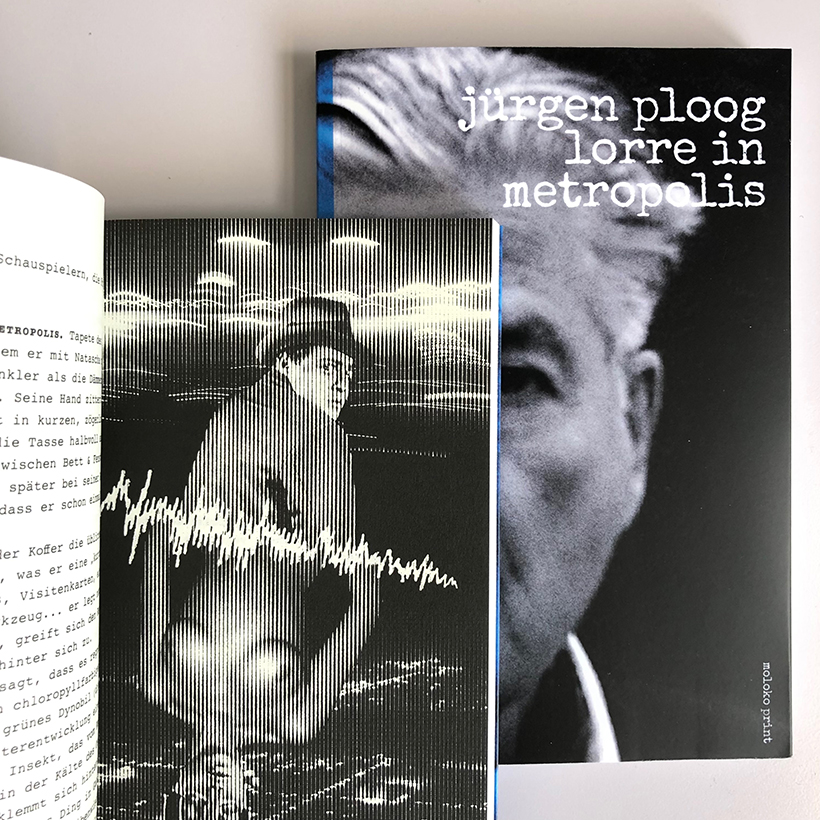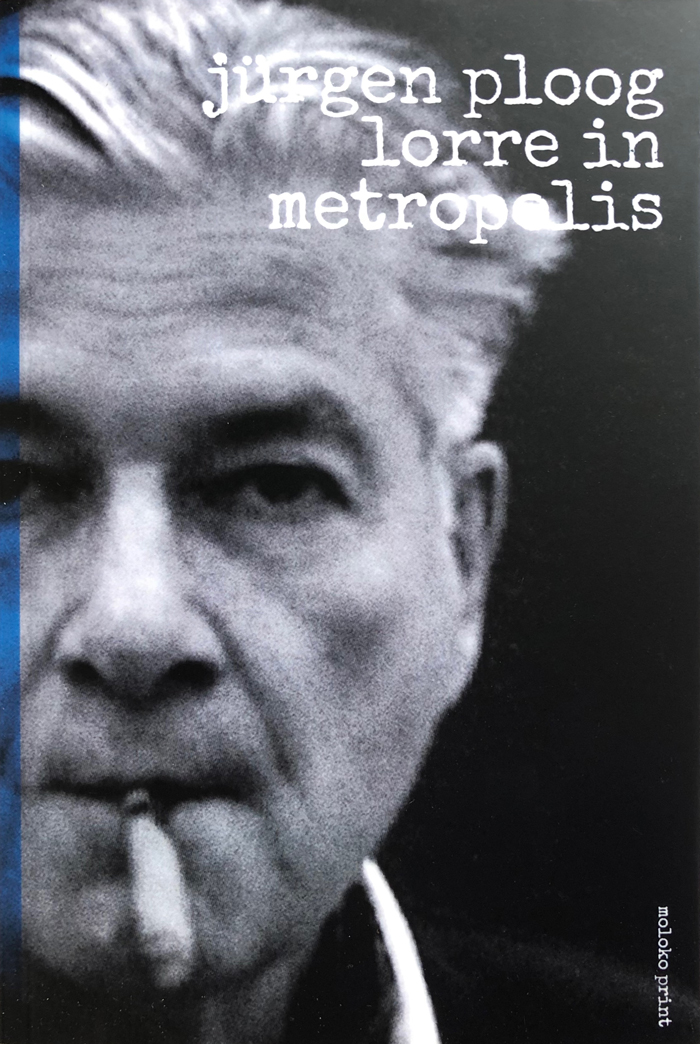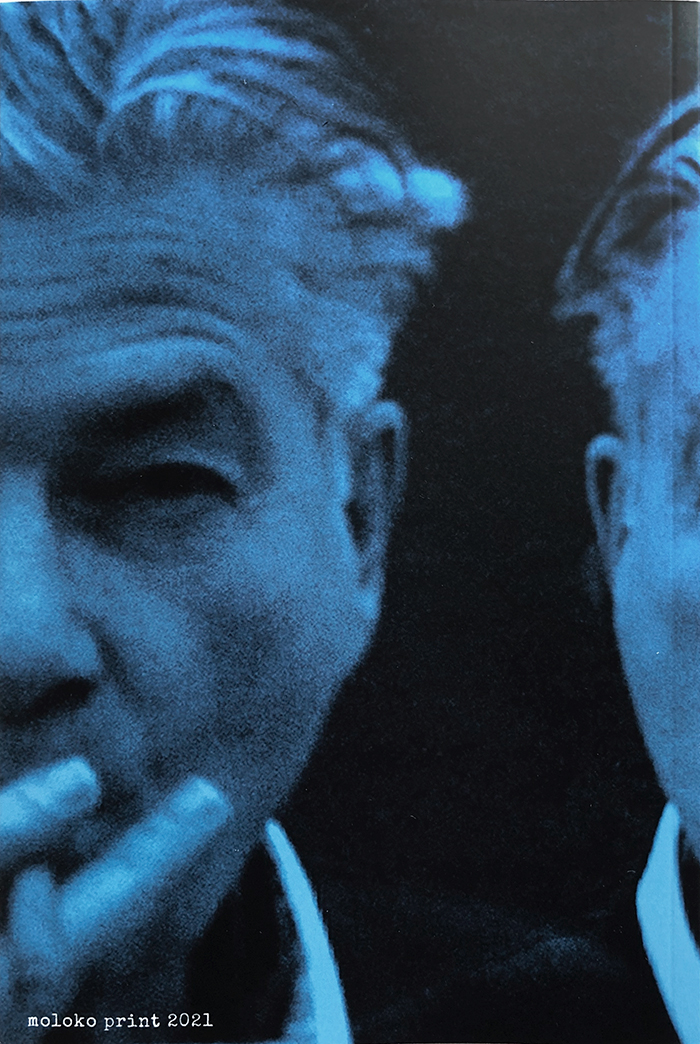German writer Jürgen Ploog (1935-2020) used to work as an airline pilot for 33 years. Consequently transience and crossing borders were integral to his existence and writings. Ploog’s early literary output gravitated naturally to the cut-up method that William Burroughs and Brion Gysin popularised in the 1960s. His early experiments at cut-ups were published in the satirical magazine Der Metzger and in the German Beat magazine Gasolin 23, which Ploog founded with Carl Weissner and Jörg Fauser in 1971. Since then the cut-up technique remained an essential component of Ploog’s prose, at first prominently present – for instance in his hardcore cut-up novels Cola-Hinterland (1969) and Die Fickmaschine (1970) – and later subdued and overlain by loose episodical structures. Pacific Boulevard (1977) and Nächte in Amnesien (1980) are examples of those later logbook-like works.
 Lorre in Metropolis is a work by Ploog published posthumously by Moloko Plus in 2021. The design by Ploog’s friend Robert Schalinski and illustrations by Ploog’s cut-up partner-in-crime Walter Hartmann make this book a loving tribute to the author, who died in Frankfurt am Main in 2020. Lorre stands for Hungarian-American actor Peter Lorre (1904-1964), who rose to fame in the 1931 thriller M, directed by Fritz Lang. Four years earlier Lang had directed his futuristic film Metropolis and in his book Lorre in Metropolis Ploog now casts Peter Lorre – known for his sinister roles – in a new Metropolis, “a cerebral, global town” as the author describes the setting of his filmscript-like book. Fuelled by underlying cut-ups Ploog’s script for a new Metropolis evokes the atmosphere of a futuristic film noir setting, where time and space take no root and storylines serpentine and defy linearity.
Lorre in Metropolis is a work by Ploog published posthumously by Moloko Plus in 2021. The design by Ploog’s friend Robert Schalinski and illustrations by Ploog’s cut-up partner-in-crime Walter Hartmann make this book a loving tribute to the author, who died in Frankfurt am Main in 2020. Lorre stands for Hungarian-American actor Peter Lorre (1904-1964), who rose to fame in the 1931 thriller M, directed by Fritz Lang. Four years earlier Lang had directed his futuristic film Metropolis and in his book Lorre in Metropolis Ploog now casts Peter Lorre – known for his sinister roles – in a new Metropolis, “a cerebral, global town” as the author describes the setting of his filmscript-like book. Fuelled by underlying cut-ups Ploog’s script for a new Metropolis evokes the atmosphere of a futuristic film noir setting, where time and space take no root and storylines serpentine and defy linearity.


